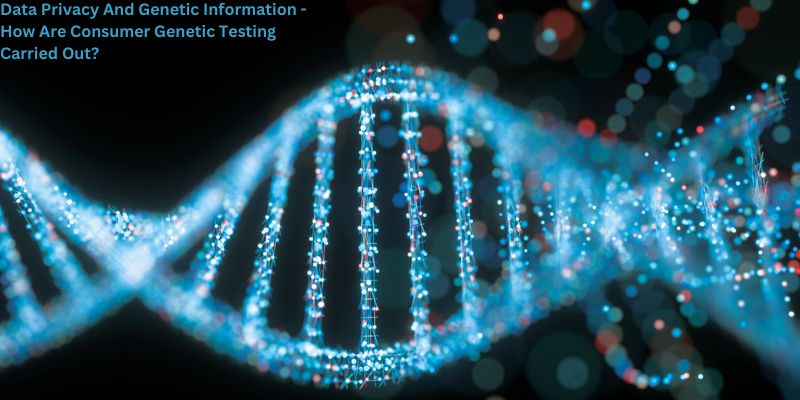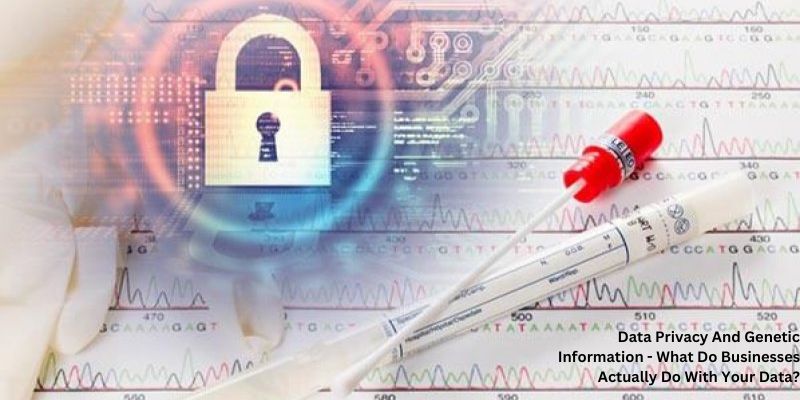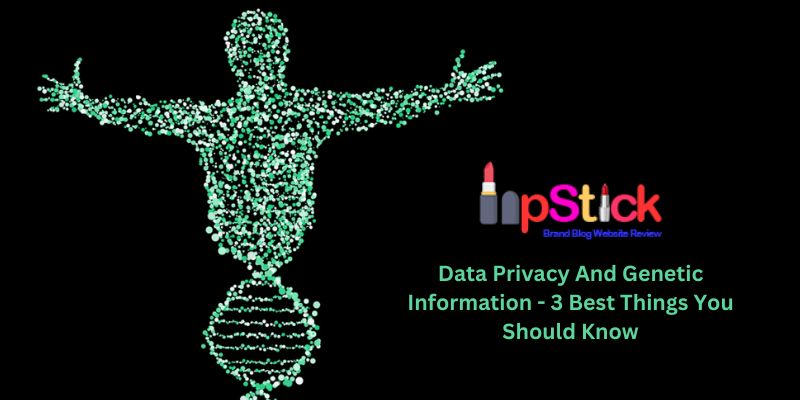In today’s rapidly evolving digital age, where information is readily accessible and shared, concerns regarding data privacy have become more prevalent than ever before. In this blog, As we navigate through the intricate web of technology and personal information, one particular area that raises both ethical and legal dilemmas is the handling of genetic information. Join lipstickbr.com as we delve into the complexities of data privacy and genetic information.
1. Data Privacy And Genetic Information – How Are Consumer Genetic Testing Carried Out?

Your whole genome, which consists of all of your DNA and thus all of your genes, is present in every cell in your body. All humans share some parts of the genome since they are necessary for life. People are all different from one another, and these variations may reveal a lot about a person’s features and predisposition for disease. However, everyone also carries a number of “genetic variants” in regions of the genome that are not directly necessary for life.
Since many years ago, testing to check for disease-related variations have been carried out by professionally qualified genetic counselors, who may also offer emotional support to patients and families in the event of bad news.
But lately, more individuals have started using commercial kits like those from 23andMe or Ancestry DNA. As opposed to being ordered by a doctor, these kits are promoted and sold directly to customers, thus the term “direct to consumer” (DTC). Due in part to the fact that they only examine a small percentage of the genome, these kits tend to be rather inexpensive, costing between $100 and $200.
For comparison, the entire genetic code of a consumer would set you back around $1000. The ability of businesses to profitably sell their customers’ genetic data to pharmaceutical firms is the other factor that allows them to sell kits at such low prices. For example, 23andMe has an agreement to license consumer information to the biotech juggernaut Genentech for their investigation into Parkinson’s illness.
If you are interested in topics similar to data privacy and genetic information, you can also refer to Data Privacy And User Profiling
2. Data Privacy And Genetic Information – What Do Businesses Actually Do With Your Data?

Only those consumers who choose to participate in data sharing with businesses are included, and 80% of 23andMe users do. The sheer popularity of this test and the volume of data it has created have made the 23andMe data beneficial in identifying the illness risks linked to certain genetic variations. Given that the majority of genetic variations do not really result in disease, the diversity of genetic data becomes crucial. Therefore, it would be hard to distinguish between variations that are hazardous and those that are unrelated in someone who, for example, has Alzheimer’s disease and had their DNA examined.
However, you would discover variations that are probably illness-related if you examined a large number of people with and without Alzheimer’s and looked for variants that are shared by people with the disease but substantially lacking among people without the disease.
These kind of genetic illness research often involve hundreds of thousands of participants and have a final cost of around $250 million. Because it has already completed the task of gathering genetic data and user-reported health information, 23andMe is a significant resource. This abundance of data has been especially useful for figuring out the genetic roots of illnesses, notably mental problems, that have defied genetic tests on smaller populations of people.
Recent research on the genetics of depression, neuroticism, and ADHD has been aided by the utilization of 23andMe user data.
3. Data Privacy And Genetic Information – Where Else May Genetic Information Wind Up?

Data sharing by testing businesses is only permitted with express permission and in an anonymous setting. Several open web services cannot be claimed to be in the same boat. Anyone may upload genetic data to websites like GEDmatch to look for relatives. In sharp contrast to 23andMe’s privacy policy, GEDmatch’s allows actual names and is publicly searchable.
When law enforcement utilized GEDmatch to resolve the decades-old Golden State Killer cold case, it gained notoriety. Since that case was solved in April, a total of 25 cases have been resolved with the use of freely accessible public genealogical databases, a practice that GEDmatch actively promotes.
There are no safeguards in place to preserve the genetic privacy of family members, despite the fact that sharing one’s own data is opt-in. Because related people share genetic material, whenever someone chooses to make their personal data public, they also implicitly make information about their relatives public.
Right present, information a relative posted to a public database may be used to identify 60% of Americans with Northern European ancestry. Within a few years, it is anticipated that this percentage would surpass 90%. National forensic DNA databases in the US that contain information on all individuals, independent of criminal background, have been advocated, albeit implementation is still years away.
There is a valid concern that the public data availability may reveal a disease risk that also applies to a relative who would like to stay unknown, even if genetic testing has the potential to breach family members’ privacy. Many people who are aware they may have a genetic illness decide not to be tested in order to continue living their life without being constrained by a diagnosis.
Conclusion
In conclusion, data privacy is of utmost importance when it comes to genetic information. The potential risks and implications of mishandling such sensitive data can have far-reaching consequences for individuals and society as a whole. It is crucial for governments, organizations, and individuals to establish robust privacy measures and ethical guidelines to protect the confidentiality and security of genetic data. By ensuring data privacy, we can foster trust, promote scientific advancements, and respect the rights and autonomy of individuals in the ever-evolving field of genetic research and healthcare.

